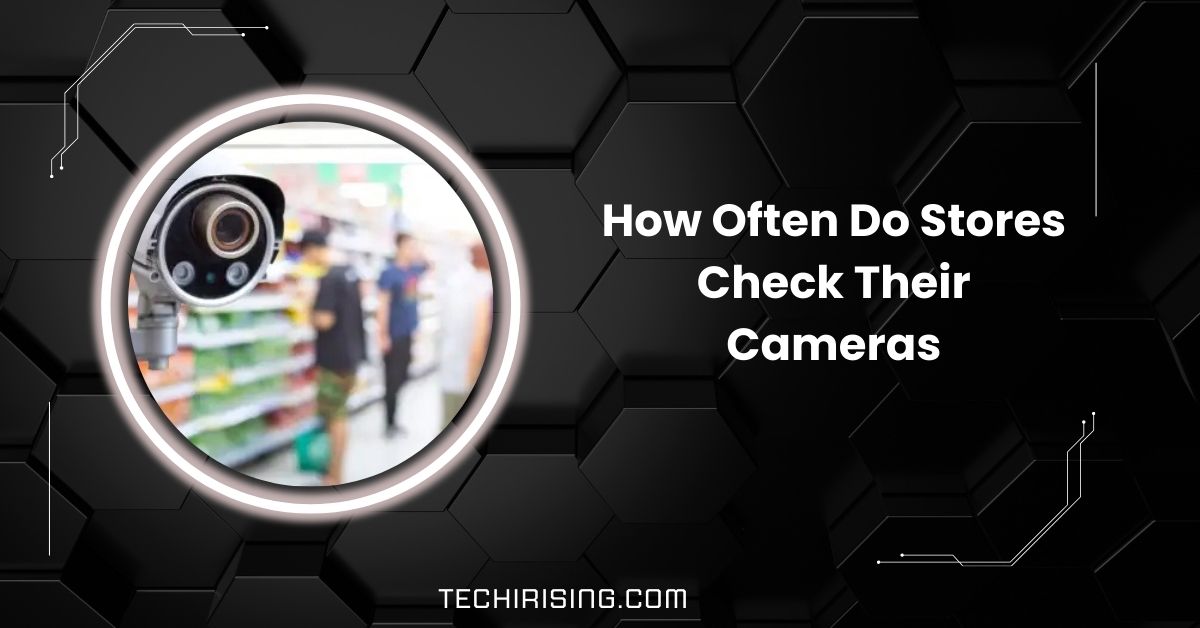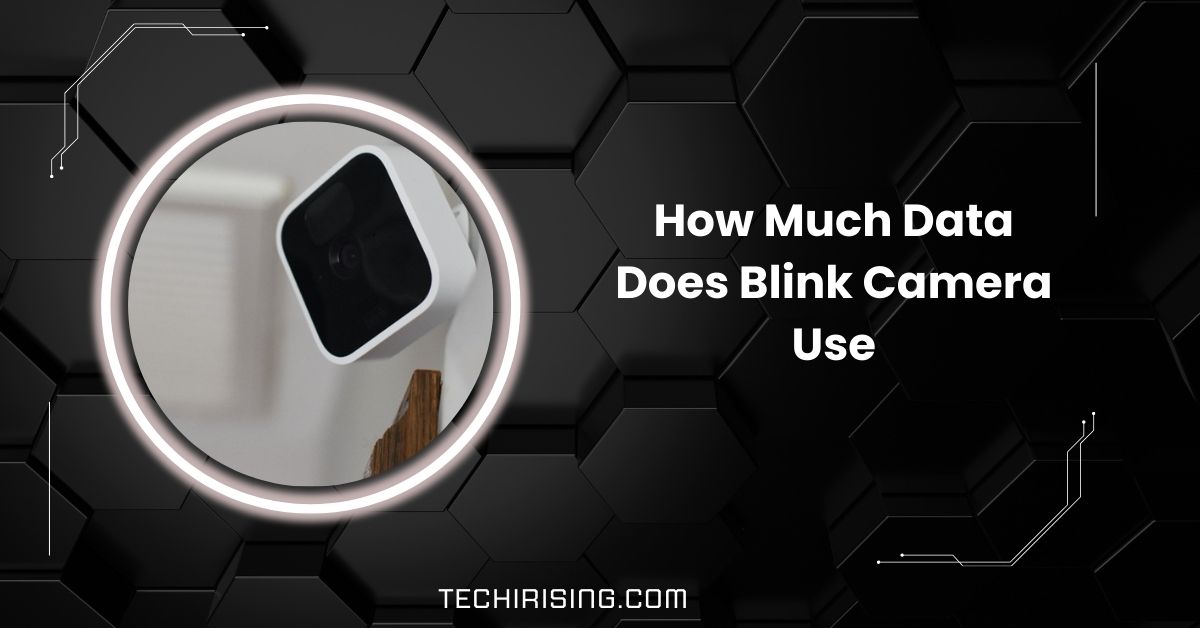In today’s world, security is a top priority for stores of all kinds, from small shops to large retailers.
Stores typically check their cameras every 24 to 48 hours or after an incident occurs. Some follow predetermined schedules, while others review footage as needed, usually within 30 days, to ensure security and prevent theft.
In this article, we’ll dive into how often stores check their cameras and why it’s an essential part of their security system.
Why Stores Use Surveillance Cameras!
1. Security and Theft Prevention
Cameras help stop theft by monitoring key areas. Thieves are less likely to steal when they see cameras; recorded footage helps stores catch and deal with incidents later.
2. Employee Monitoring
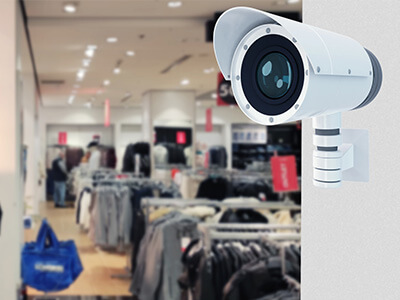
Stores use cameras to ensure employees follow the rules and work honestly. They also help identify and prevent misconduct, making the workplace fair and productive.
3. Customer Safety
Cameras keep customers safe by watching for accidents or problems. If something goes wrong, stores can use the footage to quickly understand what happened and fix the issue.
Types of Surveillance Systems in Stores!
1. Analog vs. Digital Cameras
Analog cameras are older and cost less but have lower picture quality. Digital cameras offer clearer videos and connect easily to modern systems, making them popular in stores today.
2. CCTV Systems
CCTV systems let stores monitor activities in real time and record footage for later. They are reliable and commonly used to watch key areas like entrances and checkout counters.
3. IP Cameras
IP cameras work over the Internet, allowing stores to check footage remotely. They also have advanced features like motion detection and high-quality video, making them a favorite for modern surveillance.
Frequency of Camera Checks!
1. Routine Checks
Routine checks happen daily, weekly, or monthly. These scheduled reviews help stores ensure their cameras are working and catch any problems before they become serious.
2. Incident-Based Checks
When something happens, like theft or a complaint, stores check the cameras for evidence. These reviews focus on specific times or areas to understand what occurred and take action.
3. Random Spot Checks
Unplanned checks are done to keep everyone alert. These reviews are unexpected, helping stores spot suspicious behavior and make their monitoring less predictable.
Also Read: How Much Data Does A Ring Camera Use Per Month: Explore
Routine Checks!
1. Daily Surveillance Monitoring
Stores often review daily footage from busy areas to check for theft or other issues. These quick, regular checks help keep everything running smoothly and ensure safety every day.
2. Weekly Review Schedules
Weekly checks are more detailed, covering more footage to spot patterns or incidents that might have been missed during daily reviews. These help stores stay ahead of potential problems.
3. Monthly System Maintenance
Monthly checks focus on testing and fixing cameras or storage systems to ensure proper operation. This maintenance keeps the surveillance system in top shape for long-term reliability.
Incident-Based Checks!
1. Theft or Shoplifting Incidents
When theft happens, stores check relevant camera footage to identify suspects and gather proof. This helps them address the issue and work with law enforcement if needed.
2. Employee Misconduct
If an employee is accused of wrongdoing, stores review footage to determine what really happened. This ensures fair decisions and helps maintain trust among employees.
3. Customer Disputes
Footage helps stores understand customer complaints or accidents and find a resolution. It’s a helpful way to handle disputes reasonably and efficiently.
Random Spot Checks!
1. Unannounced Reviews
Stores conduct surprise checks to keep people guessing. These reviews help spot issues that routine monitoring might miss, ensuring the system stays effective.
2. Importance of Unpredictability

Unpredictable checks keep everyone on their toes, making it harder for dishonest activities to go unnoticed. This approach strengthens overall store security.
3. Frequency and Scheduling
Stores decide how often to do spot checks based on their needs. These checks happen weekly, monthly, or as usually as needed to maintain security.
Factors Influencing Camera Check Frequency!
1. Store Size and Layout
Large stores with complex layouts check cameras more frequently to cover all areas. Smaller stores may need fewer checks since they’re easier to monitor.
2. Location and Crime Rate
Stores in high-crime areas review footage more often to prevent theft and ensure safety. Low-crime locations may check less frequently, but stay prepared for any issues.
3. Store Policies and Regulations
Each store sets its own rules for camera checks. Policies are based on legal requirements, company standards, and the store’s security needs, ensuring the system works effectively.
Must Read: Linux Bind Camera To Fixed /dev/video – Quick Solutions!
Real-Time Monitoring vs. Periodic Checks
1. Real-Time Monitoring
Large chains or high-risk businesses often employ real-time monitoring. Dedicated security personnel or teams watch live feeds to immediately detect and respond to suspicious activities.
Example: A busy supermarket may quickly monitor real-time cameras to handle shoplifting or crowded areas.
2. Periodic Checks
Smaller stores or businesses without live monitoring systems usually review footage periodically. This could mean checking cameras:
- Every 24 to 48 hours for regular oversight.
- Only after an incident, such as inventory discrepancies or customer complaints.
Proactive vs. Reactive Camera Monitoring
1. Proactive Monitoring
Proactive monitoring involves regular, scheduled reviews of security footage. The goal is to identify potential issues before they become major problems. Benefits include:
- Preventing theft and vandalism.
- Enhancing employee performance and customer service.
- Identifying unsafe practices or hazardous areas.
2. Reactive Monitoring
Many stores adopt a reactive approach, only reviewing footage after specific incidents. Examples include:
- Investigating theft or shoplifting claims.
- Verifying injury claims from customers or employees.
- Responding to alarm triggers.
Reactive monitoring helps address immediate concerns but may miss patterns or trends that proactive monitoring would catch.
Best Practices for Store Camera Monitoring
- Train Staff Regularly: Ensure employees are trained to effectively operate and review surveillance systems.
- Implement Scheduled Reviews: Set specific intervals for proactive footage checks to identify potential issues early.
- Leverage AI Technology: Use AI-powered cameras to detect unusual activity and reduce manual monitoring efforts.
- Ensure Data Security: Store footage in encrypted systems to prevent unauthorized access or breaches.
- Comply with Privacy Laws: Avoid installing cameras in private areas and display signage informing customers of surveillance.
- Focus on High-Risk Areas: Position cameras strategically in areas prone to theft or accidents.
- Retain Footage Thoughtfully: Establish policies for storing footage based on legal requirements and storage capacity.
- Use Cloud Storage: Opt for cloud-based systems to extend storage duration and access footage remotely.
- Integrate Alarms with Cameras: Link cameras to alarm systems for real-time alerts during suspicious activity.
- Conduct Periodic Audits: Review system performance and update technology to stay ahead of security challenges.
Do Stores Regularly Check Cameras?
Yes, stores regularly check their cameras to prevent theft, ensure safety, and resolve issues. While they don’t constantly monitor live footage, scheduled reviews, and incident-based checks help keep their operations secure and reliable.
How Long Is CCTV Footage Kept In Shops?
Most stores keep CCTV footage for about 30 days, which allows enough time to review it if something happens. Some stores may keep it for a shorter or longer period, depending on their policies or local regulations.
Do Shops Review CCTV?
Yes, stores review CCTV footage when needed. They check it for theft, employee misconduct, or customer disputes. While they don’t constantly watch the cameras, they will review the footage after an incident or for safety checks.
Are Store Cameras Monitored?
Store cameras are sometimes monitored live, but only sometimes. Staff may watch the footage in real time, especially in high-risk areas. However, the footage is usually reviewed later when needed for security reasons.
Read Out: Agilios AC40 Camera – An Ultimate Guide In 2024!
Do Stores Keep Security Camera Footage?
Yes, stores keep security camera footage to ensure safety and track incidents. Footage is usually stored for about 30 days, allowing enough time to review any situations that may arise, such as theft or accidents.
How Often Do Stores Check Inventory?
Stores check their inventory regularly, usually once a week or once a month. Some stores may check it more often to monitor stock levels and catch discrepancies that could indicate theft or other issues.
Do Grocery Stores Check Cameras?
Yes, grocery stores check their cameras regularly to prevent theft, monitor employee behavior, and ensure customer safety. While they don’t always watch the cameras, they review footage if something unusual happens or an incident occurs.
Do Stores Check Cameras?
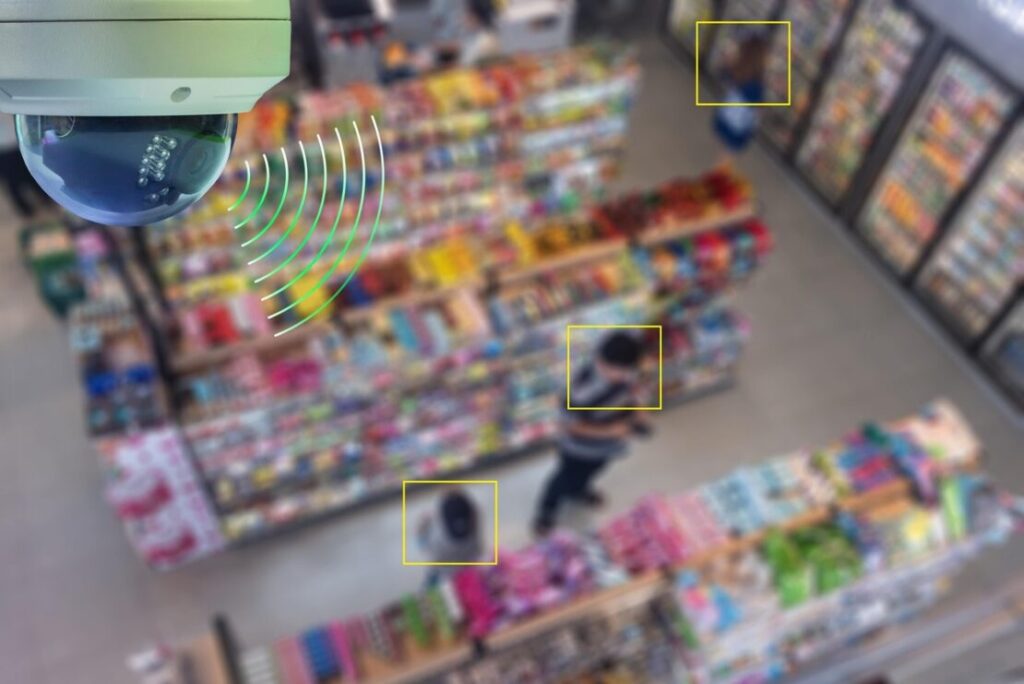
Yes, stores check their cameras to maintain security and prevent theft. While the footage isn’t reviewed all day, stores regularly check it after incidents for routine monitoring or to ensure everything is running smoothly.
Does H&M Check Their Cameras?
Yes, H&M checks its cameras to prevent theft and ensure customer safety. While they don’t monitor footage continuously, they review it if necessary, such as when a security issue or an incident needs investigating.
Do Gas Stations Check Cameras?
Yes, gas stations check their cameras regularly to ensure safety and prevent theft. Although they don’t constantly monitor footage, they review it if something suspicious happens or a problem arises at the station.
How Do Security Cameras Work In Stores?
Security cameras in stores record everything that happens in certain areas. The footage is sent to a storage device or computer, where store staff can review it. Cameras help detect theft, monitor employee behavior, and ensure customer safety.
How Often Do Gas Stations Check Cameras?
Gas stations check their cameras regularly to ensure safety and prevent theft. Although they don’t monitor them constantly, the footage is reviewed when incidents occur, such as theft or safety concerns. Regular checks help maintain security and protect both staff and customers.
How Often Does Sephora Check Their Cameras?
Sephora checks its cameras regularly to prevent theft and ensure customer safety. While they don’t monitor footage constantly, it’s reviewed when needed, such as after an incident or to spot any suspicious activity in the store.
Do Employers Check Security Cameras?
Yes, employers check security cameras to ensure workplace safety, monitor employee behavior, and prevent misconduct. They don’t always watch footage but review it when necessary, such as when an incident occurs or to resolve a concern.
How Often Do Stores Check Security Cameras?
Stores check security cameras regularly, with daily, weekly, and monthly reviews. They don’t monitor footage constantly but review it when an incident happens or for routine checks. Regular reviews help prevent theft and maintain safety.
Read It: Alternatives Feature Of A Ring Camera For Continous Recording
How Long Do Stores Keep Security Footage
Most stores keep security footage for about 30 days. This allows enough time to review any incidents, like theft or accidents. Depending on their policies or local laws, some stores may store footage for a shorter or longer period,
Do Stores Post Pictures Of Shoplifters
Some stores post pictures of shoplifters to warn others and help catch suspects. They might display these photos on social media, in-store posters, or websites. It’s part of their effort to prevent future thefts.
Do Grocery Stores Watch Security Cameras
Grocery stores don’t always monitor security cameras live. They mainly review footage when something suspicious happens, like theft or an accident. Regular checks are done, but the staff doesn’t constantly monitor the screens.
How Often Might A Store Check Their Security Cameras?
Stores check their security cameras daily, weekly, or monthly. They usually do routine checks, but footage is reviewed after specific incidents, like theft, accidents, or customer complaints, to ensure safety and security.
Do Most Supermarkets And Retail Stores Have Security Cameras?
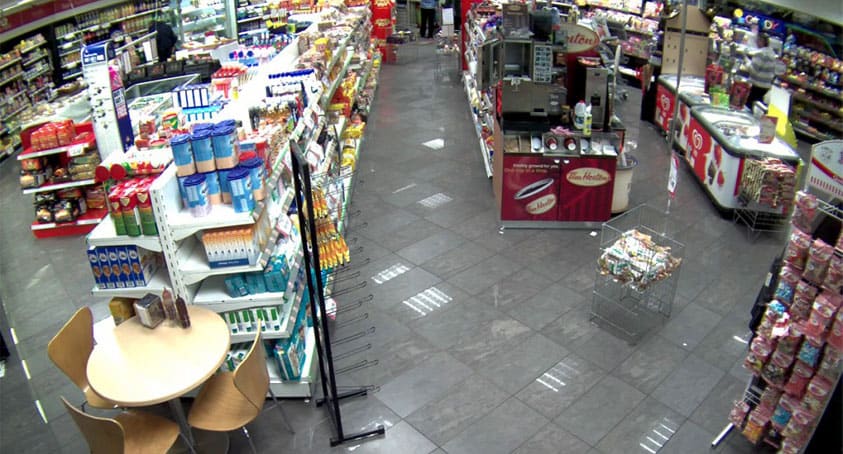
Yes, most supermarkets and retail stores have security cameras. These cameras help prevent theft, ensure employee safety, and monitor customer behavior. They’re an essential tool for store security and crime prevention.
Do Stores Actually Check Cameras
Yes, most stores check their security cameras, but how often they check depends on the store’s size and policies. Some review footage daily, while smaller stores only check when an issue, like theft or accident, happens.
Does Loss Prevention Check Cameras
Yes, loss prevention teams regularly review camera footage to catch theft, fraud, or suspicious activities. They may watch real-time footage or check specific incidents, helping stores protect their inventory and ensure customer and employee safety.
Do People Watch Security Cameras
Yes, security personnel or store managers often watch live camera feeds or review recordings. However, smaller businesses may not monitor cameras constantly and only watch footage when investigating theft, disputes, or other concerns.
Do People Even Watch The Cameras In Retail/Convenience Stores?
While people don’t constantly watch security cameras in retail stores, staff reviews the footage when needed. They check for suspicious activity or incidents to maintain safety and prevent theft or other issues.
Are Grocery Store Security Cameras Actively Monitored?
Grocery store security cameras are not always actively monitored. Staff will review footage when necessary, like after a theft or dispute. However, they aren’t typically watched live all the time but are essential for security.
15% Of Businesses Never Check Their Camera Footage
Around 15% of businesses need to check their camera footage. These businesses may need a more apparent security routine or rely on cameras for legal or insurance purposes, but many do miss opportunities to prevent theft or monitor incidents.
FAQs
1. How often do stores (any type) check the feed on their anti-theft video cameras?
Stores typically check their anti-theft video cameras daily or weekly, especially after incidents. They don’t monitor constantly but review footage as needed.
2. How often does a store check their security cameras or inventory the clearance aisles?
Stores check security cameras regularly, especially in high-risk areas like clearance aisles. They perform routine checks and review footage when needed.
3. Do shops check their CCTV footage for shoplifters, or just check at the moment and never after?
Shops review CCTV footage for shoplifters when needed, especially after an incident. They don’t always check live footage but do follow up as necessary.
4. How often do grocery stores check security cameras? Is footage deleted after a certain amount of time?
Grocery stores check cameras periodically, typically reviewing footage after an incident. Footage is usually deleted after 30 days unless needed for further investigation.
5. How often do retail stores pursue shoplifters based solely on surveillance footage/debit information?
If there’s enough evidence, retail stores may pursue shoplifters based on surveillance footage and debit info. Pursuits depend on store policy and the situation.
Conclusion
In conclusion, stores check their security cameras regularly to ensure safety, prevent theft, and resolve incidents. While not constantly monitored, routine and incident-based reviews help maintain a secure environment. Footage is typically stored for up to 30 days.

